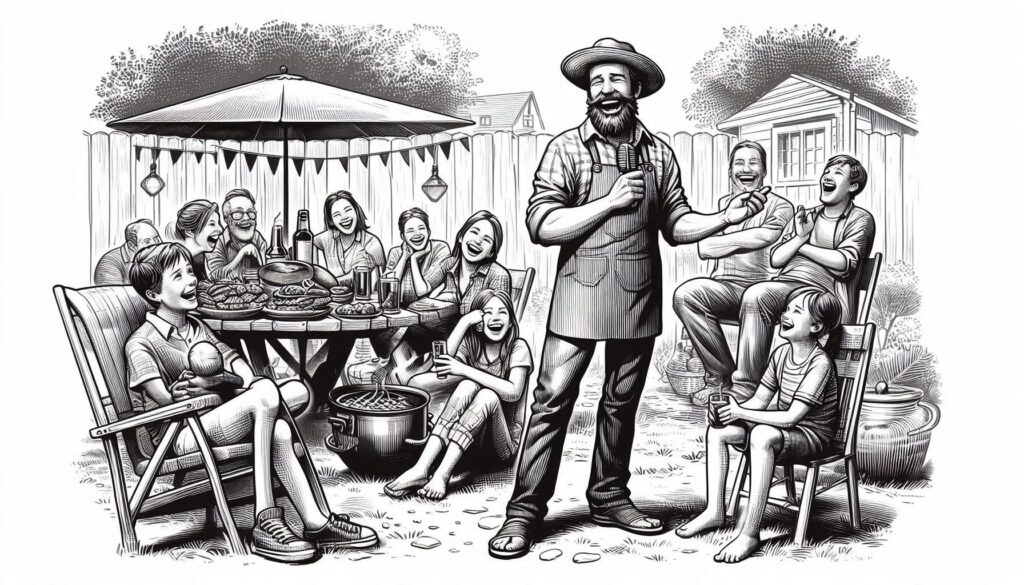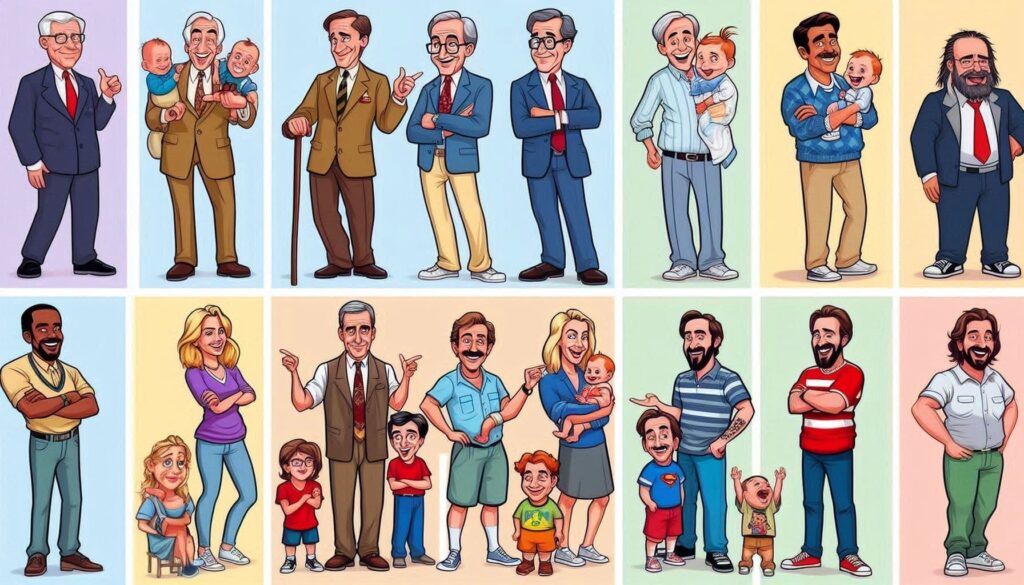
Introduction
“Why don’t skeletons fight each other? They don’t have the guts!”
Dad jokes like this one have a unique charm, don’t they? These groan-worthy one-liners are universally recognizable and seem to transcend cultural and linguistic barriers. But what makes a dad joke so… dad-like?
From family dinners to internet memes, dad jokes have carved out a special niche in our collective sense of humor. Their hallmark simplicity and pun-driven wordplay might make you roll your eyes, but they also carry surprising depth. Behind the laughs (or groans) lie fascinating insights into the psychology of humor, social bonding, and even language processing. In this post, we’ll explore what gives dad jokes their distinct flair, why they elicit such mixed reactions, and what they reveal about the timeless art of making people smile—or squirm. Let’s dive in!
What is a Dad Joke?
A dad joke is a form of humor known for its simplicity, cheesy puns, and often eye-roll-inducing wordplay. Typically short and straightforward, dad jokes thrive on innocent, harmless humor that doesn’t require much thinking—just a good groan. They often rely on a simple twist in language, such as misdirection, double meanings, or absurd punchlines, with the goal of evoking a lighthearted reaction rather than outright laughter.
The term “dad joke” likely emerged from the stereotypical image of fathers, particularly in the 1980s and 1990s, as those who loved making their kids squirm with cringe-worthy jokes. Fathers, often seen as the family comedians, became associated with this brand of humor that was corny, safe, and intentionally awkward. Though dad jokes can be shared by anyone, their charm lies in the fact that they seem most commonly tied to fatherhood—delivered with an innocent smile and a knowing, “You’ll get it in a minute!”
Here are a few classic dad jokes:
- Why can’t your nose be 12 inches long? Because then it would be a foot!
- I told my wife she was drawing her eyebrows too high. She looked surprised.
- What do you call fake spaghetti? An impasta!
These jokes embody the light-hearted, pun-filled nature of dad humor that endears itself to many.
Psychology of Humor
To understand why dad jokes work, we can look at two key humor theories: Benign Violation Theory and Incongruity Theory.
Benign Violation Theory suggests that something is funny when it violates social norms or expectations, but in a way that feels safe or non-threatening. Dad jokes often toe this line—while the punchlines can be absurd or nonsensical, they are never offensive or harsh. The humor lies in their safe absurdity. For instance, a joke like “What do you call an alligator in a vest? An investigator!” plays with the idea of mixing up an animal with a human role, but it’s all in good fun, making it a benign violation. The absurdity is playful rather than uncomfortable, which is why we laugh (or groan) instead of feeling put off.
Incongruity Theory posits that humor arises when something unexpected or out of place occurs. Dad jokes are a perfect example of this—particularly in their use of puns. The punchline of a dad joke often takes a familiar word or phrase and flips it in a way we didn’t anticipate. Take “I’m reading a book about anti-gravity. It’s impossible to put down.” The unexpected twist here is the double meaning of “impossible to put down”—what seems like a simple statement about the book’s excitement turns into a pun on anti-gravity. This sudden surprise is what triggers the laugh.
Dad jokes are effective because they combine predictability with just enough mild surprise. We expect a cheesy punchline, but the twist—though often simple—is just enough to make us smile or roll our eyes. It’s this blend of the familiar and the unexpected that makes dad jokes the perfect storm for humor.

The Social Role of Dad Jokes
Dad jokes serve a unique social function, particularly within families. At their core, these jokes are a form of family-friendly humor that fosters connection and shared experiences. By being safe, simple, and often predictable, dad jokes are accessible to people of all ages, making them perfect for intergenerational bonding. Whether told at the dinner table or during a road trip, these jokes allow family members to laugh together without any risk of crossing boundaries. The lighthearted nature of dad jokes often acts as a social glue, helping to create a sense of warmth and inclusivity within families.
The “dad persona” is central to the appeal of dad jokes. Fathers (or father-like figures) are often seen as the ones who introduce these cheesy one-liners into family dynamics. This persona is typically associated with wisdom, authority, and stability—but also with a playful, sometimes goofy sense of humor. Dad jokes are a key way of expressing this side of the father figure. By embracing corny humor, dads portray a lighthearted approach to parenting, signaling that they don’t take themselves too seriously. In turn, this invites a relaxed atmosphere where kids and adults alike can enjoy a laugh, even if the joke is intentionally cringe-worthy.
Additionally, dad jokes reflect generational shifts in humor. What may have once been seen as simply a dad’s quirky attempt at humor now resonates as a cultural artifact. As younger generations embrace meme culture and internet humor, dad jokes have evolved but retained their essence. They remain a nostalgic reminder of simpler times, and their increasing popularity online shows how humor can cross generational divides while staying true to its family-oriented roots.

Why We Instinctively Recognize Dad Jokes
We instinctively recognize dad jokes due to cultural repetition and media archetypes that have ingrained these jokes into our collective consciousness. Over the years, dad jokes have appeared in various forms of media, from sitcoms to stand-up comedy, often portrayed as a signature humor style of father figures. This consistent portrayal has created an archetype—a “dad” humor pattern—that we quickly associate with corny, pun-filled one-liners. Whether it’s from TV shows, movies, or family gatherings, this repetitive exposure has made dad jokes easily recognizable, even before the punchline lands.
Additionally, our brains are wired to recognize setup-punchline patterns in humor. Dad jokes, by nature, follow a predictable structure: a setup that builds an expectation, followed by a punchline that flips it with a play on words. This familiar structure triggers instant recognition. We don’t need to think too hard to understand a dad joke because it fits a mental framework we’ve encountered countless times. This cognitive shortcut makes dad jokes almost instinctive to process. When we hear a setup like “Why did the scarecrow win an award?” our brains immediately anticipate a punchline that plays on words or a simple twist, making the humor almost automatic.
Dad jokes have a special place in our cultural landscape, thanks to their predictability, wordplay, and harmless absurdity. Through cultural repetition and the portrayal of father figures in media, these jokes have become instinctively recognizable. Their setup-punchline structure triggers instant recognition, making them accessible and easy to enjoy, whether we laugh or groan.
